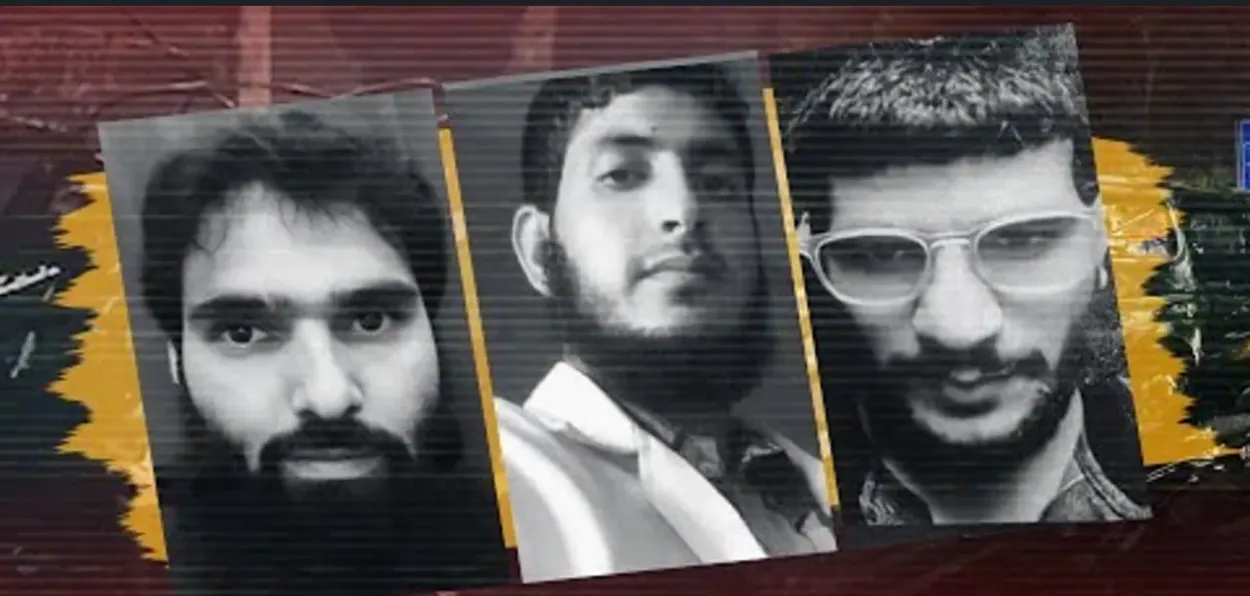
Abdullah Mansoor
The Delhi blast near Delhi's Red Fort on November 10 is not just a terrorist attack; it is a grave alarm bell. When the investigation revealed the names of doctors and educated professionals involved in it and the larger terror plot,which was pre-empted, it shattered the old notion that terrorism is solely a product of poverty and illiteracy.
This raises a disturbing question: Why do doctors, trained to save lives, become terrorists? The answer lies in the poison of a false purpose, being instilled in their minds, and a crisis of identity.
The involvement of educated people in terrorism is not new. Al-Qaeda leader al-Zawahiri was also a doctor; the head of this organisation, Osama bin Laden, was an engineer. The Red Army Faction of the 1970s in Germany was founded by intellectuals and journalists. Allah Nazar Baloch, head of the Baloch Liberation Front, is a medical doctor. This pattern exists across every ideology, proving that education is no vaccine against radicalism.
Toxic motives
They are led to believe they are fighting for a "greater cause." This is a dangerous "Us vs. Them" mentality, triggered by perceived injustice or discrimination. Gradually, their own identities (such as doctors or engineers) are subsumed under this hateful group identity. This is where the mind begins to "turn upside down" (moral inversion).
A doctor is taught that saving lives is the greatest religion, but radical thinking teaches them that taking life for a "greater cause" is justified. They begin to see themselves not as criminals, but as "warriors" or "soldiers of Allah" and consider themselves "superior," in "knowing a truth that others do not understand." They weaponise their education and skills to wage a "scientific jihad." Their education becomes a curse.
Incidents like the Delhi blast reveal that radicalisation is going on in our cities, universities, and on the internet.
When educated Muslim youth are caught in such terrorist activities, they cast suspicion on the entire community. This creates a dangerous atmosphere of mistrust and profiling in society, in which even ordinary Muslims who have nothing to do with these activities are viewed with suspicion. This mistrust further strengthens the ideological poison that seeks to divide society into 'us' and 'them'. If the fight is ideological, then the response must also be ideological and social.
Ideology gives rise to culture and psychology, which ultimately govern our actions. Terrorism also has its roots in a similar toxic ideology, which teaches that some people are "superior" and that it is their "duty" to establish an Islamic state throughout the world.
This separatist ideology considers modern civilisation to be "jahalat" (ignorance) and the concept of the "nation-state" to be "kufr" (unrighteousness). It believes that the rule of non-Muslims is illegitimate and its ultimate goal is to "internationalise jihad." When young people are taught that only they have the right to rule, they are destined to become extremists.
Role of Pasmanda Movement
This is where movements like the Pasmanda movement play a crucial role by advocating equality and social justice within Indian Muslims. This movement connects youth with the national mainstream, the nation's ideology, which is based on the belief that Pasmanda Muslims have indigenous (Indian) roots, not foreign ones.
This approach rejects 'ashraf' (elite) claims and the separatist politics of 'Hindu-Muslim.' The Pasmanda movement emphasises that the culture of Indian Muslims, such as food habits and customs, is part of the larger Indian culture.
This ideological clarity challenges the toxic propaganda of fundamentalism, which misleads youth by portraying them as "victims." The Pasmanda movement shifts the focus of struggle from an "external" enemy to an "internal" one against discrimination and Ashraf ideology. Instead of hatred, it teaches youth to engage in a positive struggle for their rights within the framework of the Constitution.
The Red Fort blast is a 'symptom'; the real disease is 'radicalisation.' This is not a fight for security agencies alone, but for society as a whole. Therefore, the solution will lie not in mere technical surveillance, but in a concrete socio-ideological roadmap.
This roadmap begins with our institutions: we must implement de-radicalisation programs in universities and colleges. This must continue in the digital world, where a "positive nationalist content campaign" is needed to counter hate propaganda.
ALSO READ: Adeeba Ali's journey from wheelchair to shooting star
However, the most important battle is on the ground, and the Pasmanda movement can play a crucial role in this. To give this ideological movement ground strength, we must vigorously promote entrepreneurship and education within Pasmanda communities.
(Abdullah Mansoor is a writer and Pasmanda intellectual. He comes from a 'Pasmanda perspective'.)
